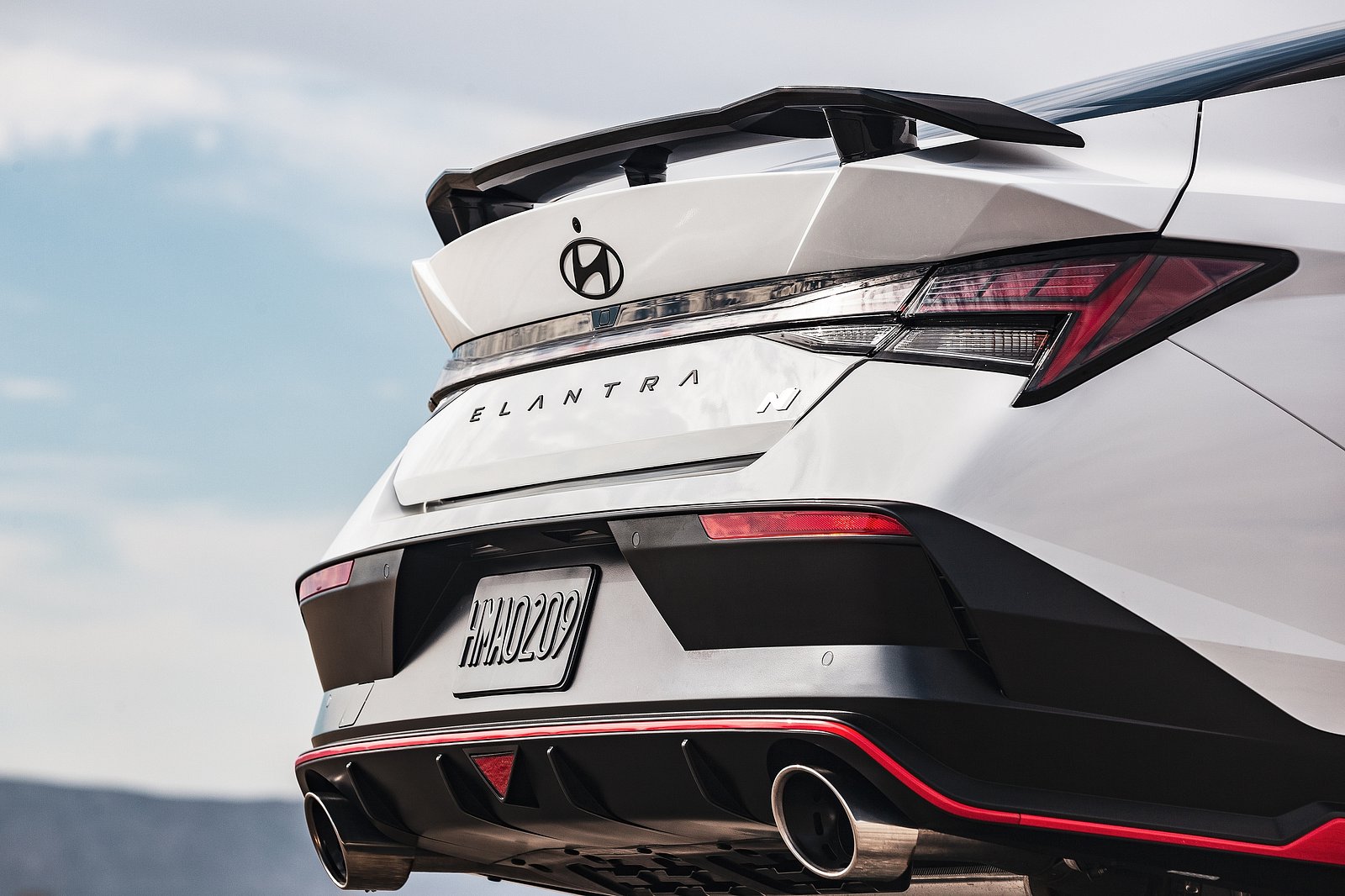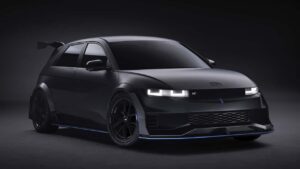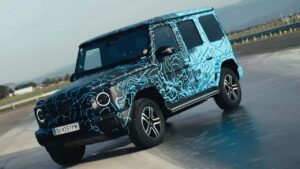Upgrade in Works: Hyundai N Model to Incorporate High-Performance Hybrid Technology
With stricter laws on emissions and steep taxes targeting vehicles with high-capacity motors, the outlook for combustion-engine sports cars is bleak. Hyundai recently halted production of their i20 N and i30 N in Europe due to the region’s stringent regulations. However, there may still be a glimmer of hope for those seeking a thrilling driving experience with a traditional engine.
In an interview with Drive, the current Executive Technical Advisor of Hyundai and former R&D head expressed interest in examining the potential of hybrid powertrains. Albert Biermann, who played a key role in establishing the N division, disclosed that more robust hybrid configurations are currently under development. This innovation is not limited to just the Hyundai brand, but extends to the high-end Genesis lineup as well. It should be noted that the Hyundai Motor Group also holds about one third of Kia’s shares.
Biermann revealed that the Elantra N, also known as the i30 Sedan N, “could be an option – it is technically included.” He declined to officially confirm if the high-performance sedan will have an electric powertrain, but acknowledged that it is a feasible possibility. It is worth noting that Hyundai has already announced a new generation model with a traditional gasoline engine, hinting at the potential for an even larger internal combustion engine. The addition of a turbocharged 2.5-liter engine would provide a significant boost compared to the current 2.0-liter engine.
The latest version of the Elantra N boasts 276 horsepower, while the engine in the Sonata N Line has a higher rating of 290 hp and can even reach up to 300 hp in the Genesis G70. Naturally, incorporating an electric motor would further enhance its power output. If given the green light, this could be just one of several hybrid N models from Hyundai. According to Biermann, he is currently working on persuading his superiors to approve a smaller electrified N car. However, this project is still in its early stages.
Hyundai is always thinking ahead, as evidenced by their recent release of the fully electric Ioniq 5 N crossover. Rumors are also circulating about a potential Ioniq 6 N sedan, possibly with increased power. Biermann stated that Hyundai aims to satisfy a variety of preferences and adapt to evolving regulations. As a former leader at BMW M, he suggested that a hybrid powertrain could serve as a middle ground between traditional performance cars and purely electric vehicles.
Toyota is envisioning a novel solution to potentially salvage sports cars equipped with conventional combustion engines. The company is exploring the possibility of utilizing hydrogen as a fuel source instead of traditional gasoline. As part of this initiative, prototypes of the GR Yaris and GR Corolla performance vehicles have been created and put through rigorous testing on the racetrack.
In a similar vein, the company AVL Racetech from Austria has developed a hydrogen-fueled 2.0-liter four-cylinder engine with a turbocharger. This powerful engine boasts an impressive output of 405 horsepower and 375 pound-feet (508 Newton-meters) of torque.
According to Porsche, the use of synthetic fuel may hold the key to addressing environmental concerns. In fact, the company has taken a unique stance on the matter and has been actively producing nearly carbon-neutral e-fuel at its Chilean factory since the end of 2022. To mark this achievement, Porsche filled up a 911 with the e-fuel. Despite being a part of the larger Volkswagen Group, Thomas Schäfer, the boss of the VW brand, dismisses the idea of prolonging the lifespan of combustion engines as futile. He believes that discussions surrounding e-fuels are simply creating unnecessary distractions, as combustion engines are considered outdated technology.
Source: Drive






